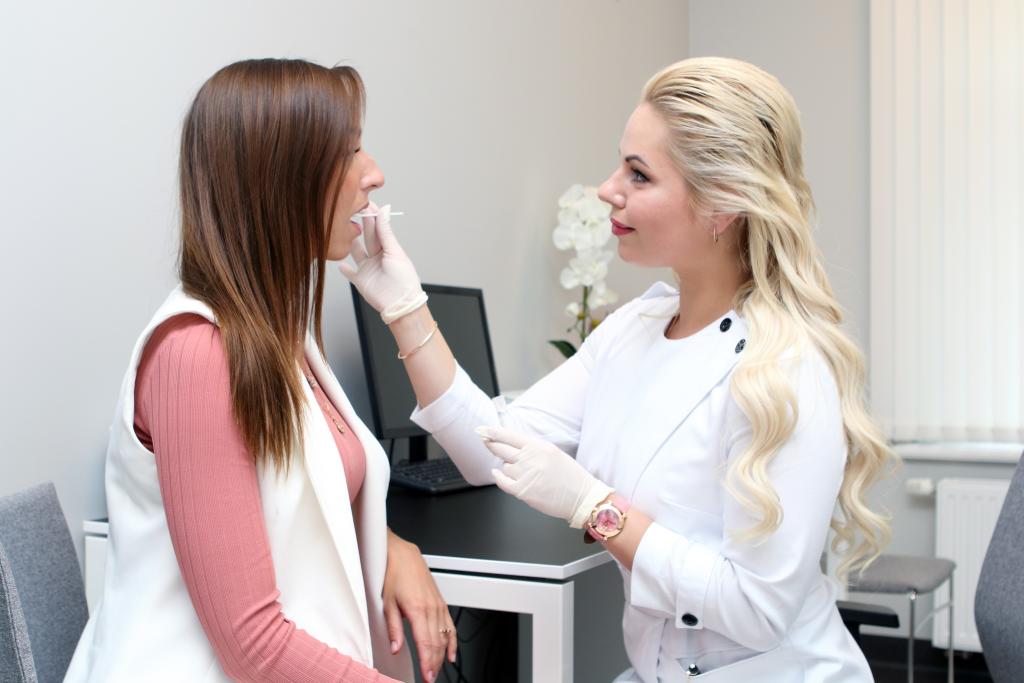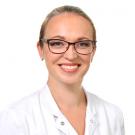Genetic tests
Genetic Tests – A Future Without Fear!
WHY IS IT WORTH KNOWING?
Aging is influenced by both genetics and external factors—environment, lifestyle, diet, stress, and more. In the Baltics, genetic testing is still relatively new, though it has been used worldwide for over 20 years. This method allows individuals to understand and manage aging processes and health conditions even before unwanted changes occur.
“Genetic tests provide a view of the future, enabling preventive control of the body's aging process throughout life, avoidance of risk factors, and precise selection of the most appropriate preventive methods for each individual,” says Dr. Jana Janovska, dermatologist and specialist in preventive medicine at the "Anti-Aging Institute" branch of "Veselības centrs 4."
Tests can detect gene changes and risk factors for the development of certain diseases at an early stage. With this information, it's possible to take proactive measures to prevent potential illnesses. As a result, specialists can precisely and individually recommend additional examinations, lifestyle adjustments, medications, vitamins, and micronutrients. It is particularly important for those in risk groups to undergo genetic testing, such as those with a family history of oncological diseases, diabetes, high blood pressure, heart attacks, strokes, migraines, autoimmune, or mental disorders.
Genetic testing is a part of personalized medicine, which is a cornerstone of the anti-aging field. Personalized medicine focuses on the individual. By working with anti-aging specialists, patients' health risk factors are assessed, their personal and family medical histories are reviewed, and genetic tests (DNA mutations) encoded in our DNA and unchanging throughout life are analyzed. We are shaping the future now! We have the opportunity to get ahead of diseases and premature aging by precisely choosing the most suitable preventive measures for ourselves.

THE GENETIC TESTING PROCESS
- Genetic tests are prescribed and interpreted by a physician specializing in preventive medicine. Certain tests can be prescribed and interpreted by a specialist in the relevant field—such as a dermatologist, nutritionist, etc.
- During the consultation, which lasts 40-60 minutes, the doctor fills out a patient questionnaire, evaluates the medical history, and assesses risk groups. Additional measurements may be taken if necessary.
- The testing material consists of saliva or blood, collected in a special container.
- The biomaterial is sent to a laboratory, where, depending on the test type, results are available within 1-10 weeks (usually within one month) and provide information about potential diseases and lifetime risk factors.
- Genetic tests are carried out in laboratories in Luxembourg, Germany, the Netherlands, Spain, Portugal, and Latvia.
- After receiving the test results, the doctor interprets them and prepares personalized recommendations.
- In a follow-up visit, the preventive medicine doctor explains the test results, suggests preventive measures, and prescribes additional tests and appropriate therapies if necessary.
- No special preparation is needed for the tests, except the patient must refrain from eating, drinking, chewing gum, and smoking for one hour before sample collection.
- Genetic analyses are conducted once in a lifetime, as human DNA remains unchanged throughout life.

The “Anti-Aging Institute” is one of the first medical institutions in Latvia to offer genetic testing services. Their long-term experience and competent experts have allowed them to develop a wide and useful range of tests.
VARIOUS GENETIC, DYNAMIC, AND FUNCTIONAL TESTS OFFERED AT THE “ANTI-AGING INSTITUTE”
Lifestyle, Diet, Fitness, Weight, and Healthy Habits
- Nutritional and Metabolic Genetic Test I
Provides genetic insights into the healthiest habits for weight loss or lifestyle improvement, such as adjusting food intake and recommending personalized supplements. It identifies genetic predispositions for obesity, eating behavior, exercise efficiency, carbohydrate and lipid metabolism, glucose metabolism, vitamin deficiency risk, etc., analyzing over 384 gene variations.
Price: €450 - Nutritional and Metabolic Genetic Test III
Provides information on the patient's metabolic predispositions, caffeine metabolism, fatty acid metabolism, weight gain risk, sweet cravings, and triglyceride level increase risk.
Price: €176 - Allergen Panel
A genetic test that identifies allergies.
Price: €400 - Sports Performance Genetic Test
Helps determine endurance, genetic muscle power, grip strength, and suggests appropriate training types for performance improvement. It assesses speed development capacity, injury risk, and optimal recovery time between workouts. Based on results, specialists can provide dietary and exercise recommendations.
Price: €176
Medication Effectiveness and Safety
- Vitamin Metabolism Genetic Test
Analyzes gene changes related to vitamins B6, B12, C, D, E, B1, folic acid (B9), vitamin A, and magnesium. This test identifies the body's initial ability to absorb vitamins, detects deficiencies, and guides the selection of appropriate supplements and dietary adjustments.
Price: €176 - Estrogen Metabolite Test
Assesses risks associated with hormone replacement therapy (HRT).
Price: €300 - Fatty Acid Analysis in Erythrocytes
Determines fatty acid levels and the omega-3 to omega-6 ratio.
Price: €300
Dermatological Tests, including Medication Effectiveness and Safety
- Acne Genetic Test
Assesses genetic predisposition to acne, severity of symptoms, and other factors like diet and hormones that may influence acne development, helping to adjust medication doses and start proper treatment early to minimize long-term risks. It analyzes 180 gene variations across five categories.
Price: €300 - Hair Loss Genetic Test
Provides personalized treatment suggestions for patients with scalp or hair issues (e.g., androgenic alopecia, baldness, and telogen effluvium). Combines genetic data with the patient's history to choose the most appropriate treatments. Analyzes 26 gene variations in nine categories.
Price: €430 - Skin Diagnostic Genetic Test
Provides information on collagen production, genetic UV protection (MC1R and ASIP genes), genetic defense against oxidative stress, Q10 processing ability, telomere length (biological age), skin elasticity, and genetic factors for cellulite development.
Price: € 176
Assessing Biological Age, Aging Processes, and Inflammation
- Biological Age (Telomere Length) Genetic Test
Measures telomere length to assess cellular aging at the time of sample collection, calculating biological age based on telomere length and providing recommendations for lifestyle and diet adjustments.
Price: €350 - DNA Methylation Process Genetic Test
Assesses biological age (cell aging rate). The test can be repeated, as this indicator can be influenced by lifestyle.Price: € 350 (initial), € 300 (repeat) - Oxidative Stress Test
Measures free radical accumulation, especially crucial for assessing cancer risks, autoimmune disease risks, chronic recurrent disease cases, post-COVID-19 recovery, recurrent infections, and weakened immunity.
Price: € 300 - Heavy Metal Accumulation Test
Detects heavy metal buildup, which increases disease and cancer risks.
Price: € 350 - Gut Microbiome Test
Analyzes gut microbiome from stool samples.
Price: € 300
For determining food intolerances
- Lactose Intolerance DNA Test
Identifies genetic predisposition to lactose intolerance.
Price: € 88 - Celiac Disease Risk DNA Test
Identifies genetic predisposition to celiac disease or gluten-sensitive enteropathy.
Price: € 114.72
For evaluating psycho-emotional health
- Neurotransmitter Panel
Analyzes dopamine, serotonin, and catecholamines (adrenaline and noradrenaline) to explain symptoms such as depression, anxiety, poor well-being, energy deficiency, or, conversely, aggression, irritability, compulsive behavior, and manic thoughts.
Price: € 350 - Behavioral and Mental Health Genetic Test
Assesses genetic factors related to empathy, happiness, morning/evening tendencies, caffeine-induced anxiety, addiction risk, and pain threshold.
Price: € 176 - Sleep Quality Panel
Analyzes melatonin secretion and concentration, identifying hormone deficiency and understanding causes of insomnia and anxiety.
Price: € 150 - Melatonin Test
Measures melatonin levels in a saliva sample. Similar to the sleep panel but requires one sample collection instead of three.
Price: € 60
For assessing hereditary cancer risks
- Hereditary Breast and Ovarian Cancer Risk Assessment
Identifies common BRCA1 (c.68_69delAG, c.181T>G, c.4035delA, c.5266dupC) and BRCA2 (c.658delGT, c.646delG) mutations in patients suspected of hereditary breast and ovarian cancer, following NCCN guidelines.
Price: € 220 - Breast and Ovarian Cancer Risk Assessment
Detects rare mutations in BRCA1 and BRCA2 genes if full BRCA1/BRCA2 sequencing shows negative results, but clinical diagnosis suggests hereditary breast/ovarian cancer.
Price: € 462 - Common Hereditary Cancer Panel
Sequencing of 33 genes using Next-Generation Sequencing (NGS). Recommended for hereditary breast and ovarian cancer cases and various other cancers, including Lynch syndrome (hereditary non-polyposis colorectal cancer), Li-Fraumeni syndrome, Cowden syndrome, multiple endocrine neoplasia (MEN) syndrome, various hereditary intestinal polyposes with high malignancy risk, and neurofibromatosis type 1.
Price: € 715 - Extended Hereditary Cancer Panel
Sequencing of 111 genes using NGS. Molecular genetic testing for various hereditary cancer syndromes.
Price: € 1441
Additional Costs for Genetic Testing
Consultation for Genetic Test Prescription and Documentation Completion:
- Dr. Jana Janovska: €350 (40-60 min)
- Other specialists: €110 (30-60 min)
Follow-up Consultation for Genetic Test Interpretation and Results Discussion:
- Dr. Jana Janovska: €350 (40-60 min)
- Other specialists: €150 (30-60 min)






